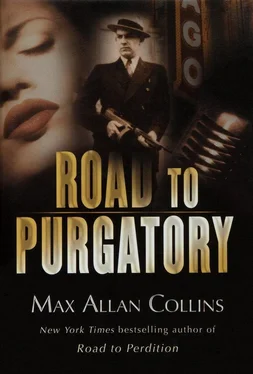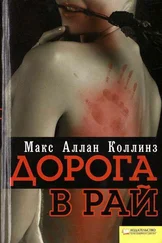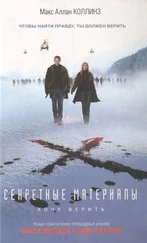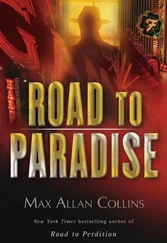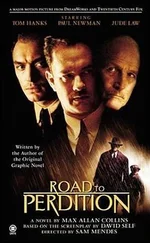This did not go over well with the crowd, separated from them by a narrow strip of brick street. Like Apaches, the rioters raised rifles high in clenched fists and filled the night with non-verbal, animal war cries.
Then, finally, some damn fool pulled a trigger.
The rioters began to fire their weapons — into the air, mostly, some firing at city hall itself, high over the heads of the row of cops, who were doing their best not to cower, as slugs dug holes in the brick building, spitting back chunks and slivers and flakes to rain down upon the scared-shitless guardians in blue below.
Through this volatile crowd, gunfire snapping in the air like dozens of whipcracks, O’Sullivan and Davis made their way; it took ten minutes to traverse the few yards. While a sporadic barrage of shots continued to emerge from the mob, the coppers out front aimed their weapons but did not fire — which seemed to O’Sullivan a miracle.
Then he and Davis stepped into the no-man’s land that was about half of Third Avenue, that brick strip between cops and rioters, and held up their hands as they went, turning their backs to the cops. The gunfire abated, as the rioters — many standing on their toes and jumping up, to see what was going on — reacted to the two men in civilian clothes going across that unofficial barrier toward the enemy camp.
Not completely unaware of the irony, O’Sullivan yelled, “We’re Looney men!”
Davis echoed him, and no one from the mob tried to stop them or, better yet, shoot them.
O’Sullivan approached a cop he recognized, Sergeant Bill O’Malley, who was in the midst of the row of armed coppers.
“Bill, your captain’s expecting us,” O’Sullivan yelled, over the war whoops of the crowd. “I’m here at Chief Cox’s behest.”
O’Malley accepted this with a nod, and sent them up the stairs, unaccompanied, where they paused on the landing to look out at the teeming force that O’Sullivan had unleashed.
It was one of the most frightening sights of Michael O’Sullivan’s life — which was no small thing.
Just inside the door, Captain James Doherty met them, a solemn-faced, redheaded, green-eyed uniformed cop, loyal to his chief. Quickly he escorted the two Looney soldiers up to the third-floor hallway, where the two uniformed cops still stood guard.
O’Sullivan let Doherty do the talking.
“We have a full-scale riot out there,” the captain told the two sentries, gesturing toward the muffled popping gunfire. “There’s still a shotgun or two downstairs. Position yourselves on the landing, boys — guard the city hall front gates.”
The older smug cop, who’d threatened the Looney body guards with his nightstick before, frowned and said, “We have orders from the mayor to maintain this post.”
Doherty stepped forward and his face was inches from his subordinate’s. “These orders come straight from Chief Cox — this riot situation has developed subsequent to the mayor’s orders, and supersedes them. Assume your new assignment, or I’ll have you removed and put behind bars.”
In an eyeblink, the two sentries had abandoned this post for their new one.
Captain Doherty turned his seemingly placid green eyes on O’Sullivan and Davis and, very quietly, said, “I have to go down to stand with my men. We have under forty to try to hold back a mob of two thousand... I don’t know what you intend to do in the mayor’s office, and I don’t want to know. Neither does Chief Cox... Understood, gents?”
“Understood. The Black Maria is standing by?”
“Yes. I have a driver posted downstairs.” He handed a slip of paper with a phone number to O’Sullivan. “Call when you’re ready. He’ll bring up a stretcher.”
Then the captain, too, was gone.
O’Sullivan withdrew his .45 Colt automatic, like him a veteran of the Great War. Davis reached under his baby-blue suitcoat for his long-barreled .38, slung under his arm in a handtooled leather holster worthy of Wyatt Earp.
“We try not to kill anybody,” O’Sullivan said.
“You say so,” Davis said, noncommittally.
In the outer office, O’Sullivan slipped out of his topcoat and slung it over the counter, to be less encumbered. Davis wore no topcoat, just that spiffy blue suit with derby. O’Sullivan led the way through the little gate to the door that said MAYOR HAROLD M. SCHRIVER — PRIVATE.
Not knowing whether it was locked or not, O’Sullivan took no chances; the mayor had undoubtedly been informed by phone or otherwise of the impending danger outside and may well have locked himself in. So the rescuer raised his right foot and kicked it open, the door springing off its hinges and the pebbled glass shattering under the impact, chunks falling like melting sheets of ice.
His shoes crunching shards as he entered, O’Sullivan took position to the right of the doorway, leaving the left for Davis, who immediately followed, and both men fanned their guns around the startled tableau within.
John Looney, barely conscious, lay asprawl on his back on the leather couch against the left wall; his white shirt was spattered with blood, the brown suit rumpled, dark dried patches of blood on it, too. The mayor sat behind his desk, leaned back in his swivel chair, and his two bruisers, pockmarked Simmons and round-mugged Randell, sat in a pair of hardback chairs, facing the couch but not close by. All three men were in shirtsleeves, white cloth splotched with blood. The two burly cops were hunkered over, as if exhausted.
“Tuckered out, boys?” O’Sullivan said.
“Takes it out of you,” Davis said, “whompin’ a helpless old man.”
Simmons sneered and went for his holstered gun; the weapon was half out of its hip holster and the plainclothes dick was three-quarters up out of the chair when O’Sullivan’s .45 slug took the top of his head off and splashed a covered bridge depicted in watercolor on a 1922 calendar over the file cabinets. Small spatters of blood marked various dates.
The dead Simmons tumbled back over his chair and lay in an awkward V half between the toppled chair and the files.
“Jesus!” the mayor said, on his feet; but he had sense enough to lay his hands flat on the desktop.
The other cop, Randell, remained seated; his bland moon face was largely emotionless, though his left eye was twitching. Slowly he raised his hands.
Davis, near the door, threw his comrade a look that said, Try not to kill anybody, huh ? which O’Sullivan ignored, saying, “Got a gun back there, Your Honor?”
The toad-like mayor, trembling with rage and fear, said, “Are you crazy? Out of your minds?”
“We’re Looney,” Davis said, gold teeth glittering.
Schriver was sputtering, words rushing out: “You don’t just waltz in the mayor’s office and start shooting the place up! There’s forty cops downstairs, you fools! You killed one of their brothers! You’ll fry for this.”
“Those forty cops,” O’Sullivan said, “have their hands full with two or three thousand voters who want your fat ass out from behind that desk... Speaking of which, go stand by the corpse and put your hands up. High.”
Swallowing, the now-speechless mayor did that very thing, revealing the front of his gray pants as glistening wet, which O’Sullivan found gratifying — the two Looney soldiers were making their point.
O’Sullivan got behind the desk and used the mayor’s phone to call the number Captain Doherty had provided.
In the meantime, Davis knelt beside Looney, whose face was battered and swollen, decorated with shades of blue, black, orange, and red, his eyes almost shut, like a heavyweight fighter in the final round.
O’Sullivan strolled from behind the desk to where the mayor stood; the stench of urine wasn’t pleasant.
Читать дальше
